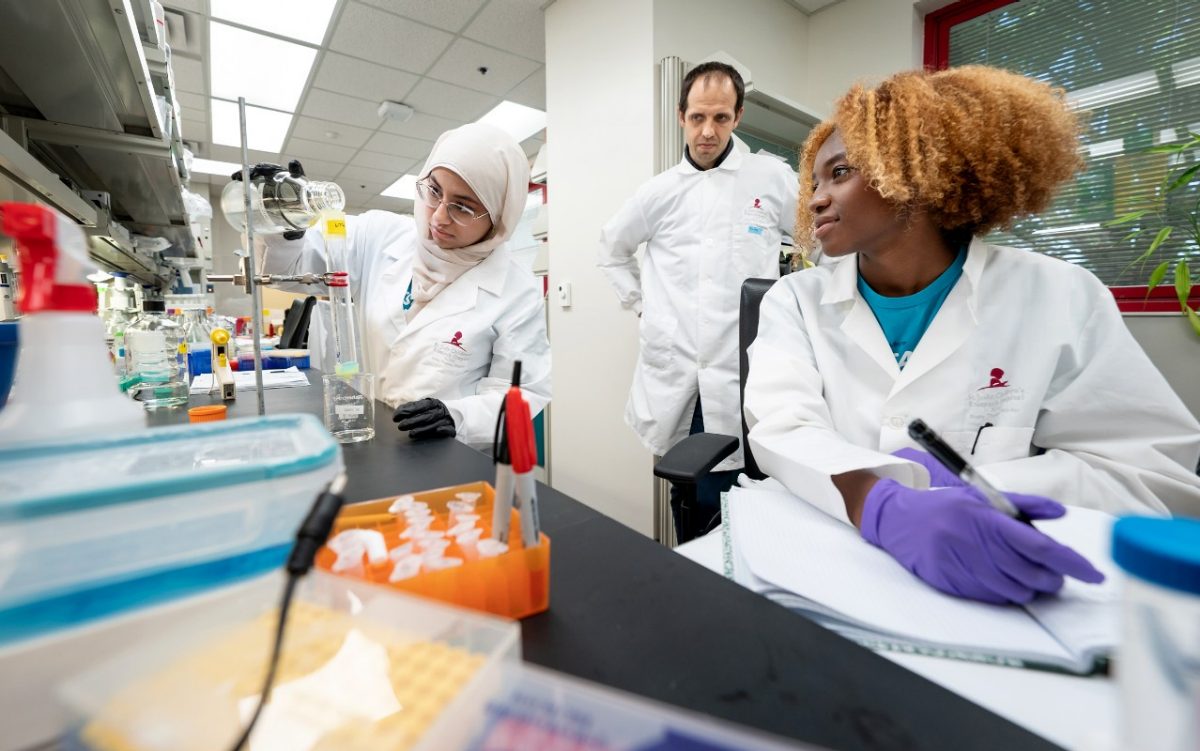St. Jude Children’s Research Hospital has teamed up with Memphis-Shelby County Schools to provide science, technology, engineering, and mathematics (STEM) education and outreach to students from kindergarten to twelfth grade.
According to St. Jude, it is “likely the first major medical and research institution to dedicate significant resources in its own community to educate and train the next generation of doctors, nurses, researchers, and scientific academic leaders.
Kate Ayers is director of STEM education and outreach at St. Jude, and said that while the program has been around for about 15 years, the partnership with MSCS started about five years ago.
Ayers started working with the program in 2013, and at that time there was a curriculum written at the 4th grade level about cells, cancer, and healthy living. However, there was a big shift when the Next Generation Science Standards were first introduced.
“With that comes a major shift in how science is taught in the classroom,” said Ayers. “I think Tennessee adopted those standards two years later, and it began to be integrated into curriculum, or the expectation was that it was integrated into curriculum, beginning in 2016.”
Ayers said that this marks the point where St. Jude began to shift its program model, and when it began to engage MSCS in a “more intentional way.”
St. Jude said this need is also the result of the “national education debt,” and “the legacy of school segregation.”
“On one side there is the history of racism and classism that has historically plagued our education system for a very long time, and creates pathways where resources are allocated to some schools and not to other schools,” said Ayers.
The term “education debt” was coined by Gloria Ladson-Billings, a critical race theorist, and says Ayers, the term discusses the education gap.
“That implies that there is some deficiency in the child — that they aren’t meeting these standards, and by shifting the language to an education debt, she [Ladson-Billings] is calling out the systems that have prevented access to high quality education for people of color and people from low economic statuses.”
There is also a growing emphasis on diversity, equity, and inclusion in the field of science, said Ayers.
Ayers said that education debt has prevented many children of color, young girls, and children from low socioeconomic backgrounds from pursuing careers in science. “Institutions like St. Jude and scientific institutions across the nation are getting pressure put on them by federal granting mechanisms to address this issue of diversity in the field of science,” said Ayers. “Those two things meet where we need more scientists of color and more women coming into the field of science in order to ensure that we have this diversity of thought, diversity of perspectives, that new research has shown enhances the quality of problem solving and critical thinking.”
According to St. Jude, the most recent Tennessee Comprehensive Assessment Program (TCAP) scores show that “13 percent of the 110,000-plus students (about 90 percent of whom identify as Black, Hispanic, or Native American and about 60 percent of whom are economically disadvantaged) in the Memphis-Shelby County Schools system are proficient in math.”
In order to address this education debt in meaningful ways, Ayers said that St. Jude works to make sure that children are getting access to “high-quality science education.”
The St. Jude K-12 Cancer Education and Outreach Program offers four different programs for the 2022-2023 school year.
- The Kindergarten Collaborative works with 27 teachers in six schools to introduce STEM to kindergarteners.
- The St. Jude Afterschool STEM Clubs were in 10 schools for the fall semester, and will be in 12 schools for the spring semester. According to St. Jude, students in this program work together to “design and build a prosthetic hand for an osteosarcoma patient who had an amputation.”
- Middle school students work to “identify potential areas of cancer health disparities in their local communities,” through the Middle School Community Health Clubs.
- The St. Jude High School and College Research Immersion Program was launched in the summer of 2022 and placed high school and college students in eight-week internships on the St. Jude campus.
